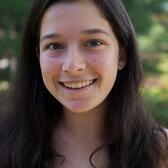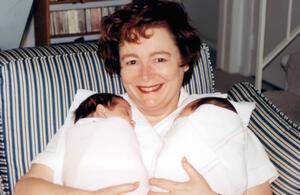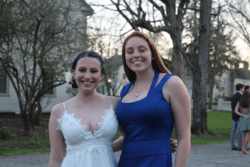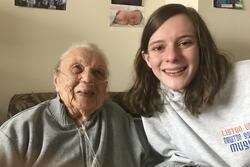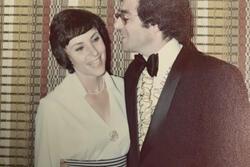L'Dor Vador: Lessons from my Grandmother
My grandmother, Marguerite, was born in Paris in 1937 to Polish parents, Fania and Adam. Shortly after her birth, the family moved to Jarnac, a tiny village in southwestern France. The family was Jewish, though they were not observant. Regardless, after the fall of the Third Republic in 1940, it became dangerous for them to even speak of their religion. Therefore, Marguerite was raised without any recognition of her Jewish background, and she even had a Catholic baptism. During the war she was hidden in the homes of various Christian villagers. In fact, my middle name, Lucienne, comes from one of the young women who helped hide my grandmother and her family's Jewish identity and risked her safety to bring the three of them out of the Nazi-occupied area of France.
By the time Marguerite and her mother arrived in New York City in 1945, Marguerite didn’t identify at all with Judaism. Her mother, who had never been a particularly observant Jew even before the war, showed no interest in a Jewish upbringing for Marguerite. She did, however, feel a strong connection to her years in France and sent my grandmother to a French school in New York for many years. Marguerite was an avid reader and a devoted student who spent her childhood focused on academics; she was heavily influenced by her mother’s desire for her to attend medical school like her late father.
Following in her father’s footsteps, Marguerite went to medical school upon graduation from the all-women's Bryn Mawr College in Pennsylvania. Adam had been a member of the Communist Party who used his medical training to help injured fighters in the French resistance while the family lived in Jarnac during the war. Although he died when Marguerite was very young, she remembers their relationship as close and loving, and she kept his memory in mind as she went through medical school. Marguerite was one of three women in her graduating class at Yale, but she wasn't particularly uncomfortable or upset by this gender breakdown. This kind of ratio was normal at the time, and the university had only recently begun to accept female medical students.
In many ways, my grandmother and I are very similar. We're both bookish and love doing crossword puzzles. We're both short and left-handed, although Grammy was taught to write with her right hand in primary school. Despite all of these similarities, our relationships with Judaism are profoundly different. I've never had to conceal my Jewish faith and have always been in spaces that are friendly and welcoming to me as a Jewish woman. I've never felt endangered because of my family's background or by our religious beliefs and traditions.
Hearing Grammy's story and the hardships that she endured because of her Jewish background has made me feel a deeper connection to Judaism. My religious identity is inextricably tied with her life-altering experience during the Holocaust. By openly practicing Judaism, I reclaim my family's faith and acknowledge that the environment in which I live is a privileged one.
My grandmother has inspired my feminist identity as well as my Jewish one. I'm currently one of two girls in a fifteen-person physics class, and I've been very aware of this gender breakdown throughout the school year. Even though it’s been challenging, I always feel inspired and motivated when I consider Grammy’s work to advance in male-dominated fields decades ago, work that blazed a path for me in math and science. I carry her spirit and drive with me into all academic settings I enter, especially male-dominated ones. When I solve a problem in physics class or prove a theorem that had been confusing me in calculus, I feel that I am carrying on her legacy.
Many relatives and friends say that Grammy and I look similar. I’m proud to look like her, but what I want most is to be like her. She has taught me to be ambitious, resilient, and determined, and most of all, to take take pride in my identity as a Jewish feminist.
This piece was written as part of JWA’s Rising Voices Fellowship.

